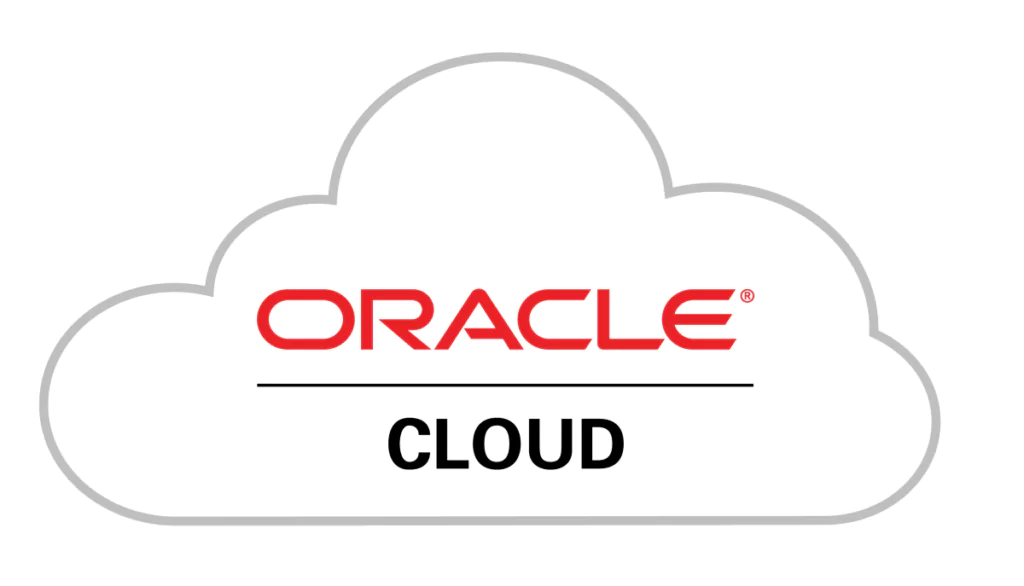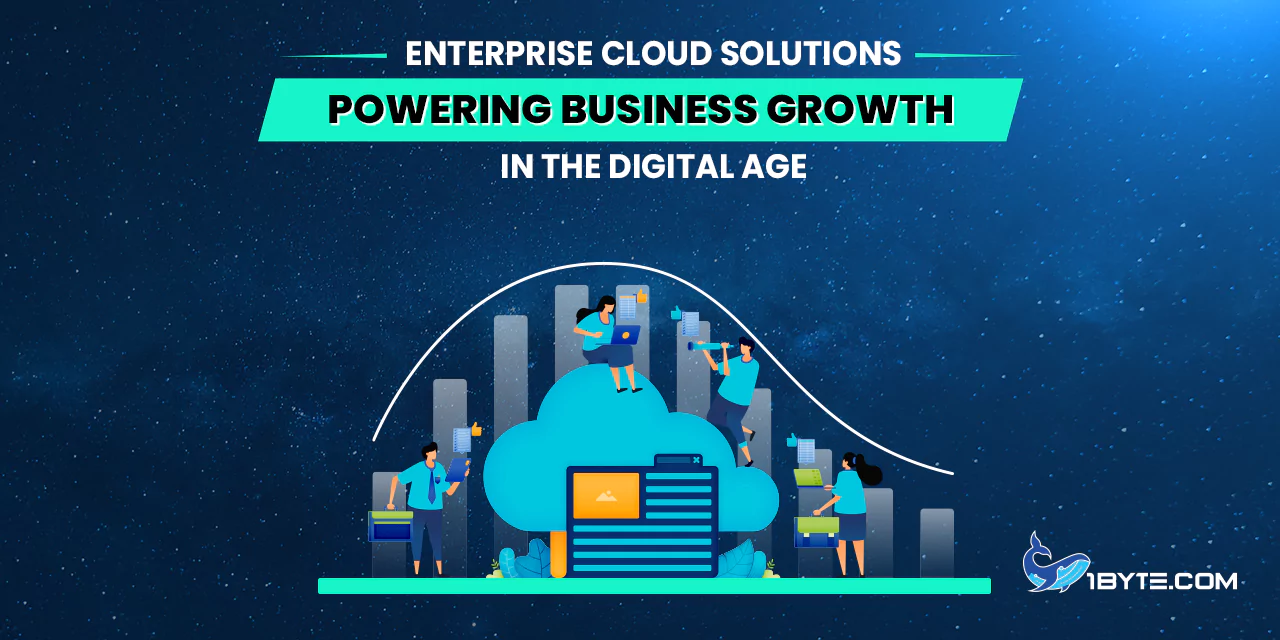In today’s digital age, businesses strive for growth like never before. Enter, enterprise cloud solutions. These dynamic platforms empower companies to expand efficiently. How does it work? By offering scalable resources tailored to business needs. This active scalability ensures resources match demand. Not only that, but enterprise cloud enhances collaboration. Teams access data seamlessly, enhancing productivity. But it’s not just about growth; it’s about staying agile too. Enterprise cloud enables businesses to innovate rapidly. It’s time to harness the power of enterprise cloud for sustained success.
Understanding Enterprise Cloud Solutions
In the vast landscape of technological advancement, “enterprise cloud” emerges as a game-changer. This transformative solution is revolutionizing how businesses operate. With its active scalability, it adapts effortlessly to changing demands. It’s not just about data storage; it’s a catalyst for growth. The enterprise cloud model replaces traditional hardware setups, streamlining operations. This section delves into the key features and benefits of embracing enterprise cloud solutions in the digital age.
The definition and characteristics of enterprise cloud solutions
Enterprise cloud solutions, at their core, are advanced platforms that enable businesses to access and manage resources remotely over the internet. This revolutionary approach replaces traditional on-premises infrastructure with virtualized services.
These solutions, characterized by their scalability and flexibility, provide businesses with the ability to scale resources up or down based on their needs. Such scalability ensures that a company’s operations remain smooth regardless of fluctuations in demand.
Moreover, enterprise cloud solutions offer a pay-as-you-go model, allowing businesses to pay only for the resources they actually use. This cost-effective approach is particularly appealing for businesses aiming to optimize their spending.
Furthermore, enterprise cloud solutions are known for their accessibility. Employees can securely access data and applications from anywhere with an internet connection. This accessibility fosters collaboration and productivity, especially in today’s remote work landscape.
Benefits of adopting enterprise cloud solutions for businesses
Embracing enterprise cloud solutions comes with a multitude of advantages that are reshaping the way businesses operate. From scalability to cost-efficiency, these benefits are driving the shift toward cloud-based infrastructure.
Scalability and flexibility
Enterprise cloud solutions bring a transformative level of scalability and flexibility to businesses. Scaling resources according to demand is crucial for modern enterprises, and enterprise cloud caters to this need seamlessly.
With enterprise cloud, businesses can effortlessly scale up resources during peak periods, ensuring smooth operations and customer satisfaction. This adaptability eliminates the risk of over-provisioning or under-utilization.
Moreover, enterprise cloud solutions enable swift resource downsizing during quieter periods, preventing wastage and unnecessary expenses. This flexibility translates to cost savings and a more agile business model.
Lastly, the flexibility extends to accommodating new technologies and tools. Businesses can easily integrate emerging solutions into their cloud infrastructure without disruptions. This ease of integration fosters innovation and quick adoption of industry trends.
Cost efficiency
Enterprise cloud solutions are reshaping the financial landscape for businesses, offering unmatched cost efficiency. This economical advantage stems from the pay-as-you-go model, where companies pay only for what they use.
For businesses, this means no more hefty upfront investments in hardware. Enterprise cloud eliminates the need to buy and maintain costly infrastructure, reducing capital expenditures significantly.

Additionally, operating expenses are streamlined as well. By adopting enterprise cloud, businesses reduce ongoing costs associated with maintenance, upgrades, and energy consumption.
Finally, the scalability of enterprise cloud prevents over-spending on resources that go unused. As the business grows, it can allocate resources where needed without wastage. This efficient resource allocation optimizes spending.
Enhanced collaboration and accessibility
In the digital age, seamless collaboration is vital, and enterprise cloud solutions excel in this regard. These solutions enable teams to collaborate effectively, irrespective of their geographic locations.
With enterprise cloud, employees can access shared documents and applications from anywhere with an internet connection. This accessibility eliminates bottlenecks and ensures smooth workflows.
What’s more, enterprise cloud enhances data security during collaboration. Files are stored centrally, reducing the risks associated with version control issues and unauthorized access.
Last but not least, real-time collaboration tools embedded in enterprise cloud platforms streamline communication. Team members can work on documents simultaneously, boosting productivity and innovation.
Overcoming Challenges and Considerations
While enterprise cloud solutions offer numerous benefits, their adoption also comes with unique challenges and important considerations. Navigating these challenges is crucial for businesses aiming to harness the full potential of the cloud in the digital age.
Security and data privacy concerns
As businesses migrate to enterprise cloud solutions, ensuring robust security and data privacy becomes paramount. The sensitive nature of data requires a comprehensive approach to safeguarding it in the cloud.
One challenge is the perception that cloud environments might not be as secure as on-premises solutions. However, reputable enterprise cloud providers implement stringent security measures to protect data.
Encryption is a key strategy in addressing security concerns. Data stored in the cloud is often encrypted both in transit and at rest. This encryption prevents unauthorized access and mitigates potential breaches.
Moreover, data privacy regulations like GDPR and HIPAA impose stringent compliance requirements. Businesses adopting enterprise cloud must ensure that their chosen provider adheres to these regulations.
Migration and integration challenges
Transitioning to enterprise cloud solutions involves overcoming migration and integration challenges. The process of migrating existing systems and data to the cloud requires careful planning.
One hurdle is the complexity of moving legacy applications. However, with proper preparation and a phased approach, the migration can be executed smoothly.
Integration with existing systems is another consideration. Ensuring seamless communication between on-premises and cloud components is crucial. This integration streamlines operations and prevents data silos.
What’s more, a potential challenge is the need to reconfigure workflows to align with cloud capabilities. Businesses considering enterprise cloud must assess and adjust their processes accordingly.
Recommended reading: A Guide to Effective Cloud Orchestration
Top 5 Enterprise Cloud Options
With the array of enterprise cloud solutions available, choosing the right one can be a game-changing decision. In this section, we explore the top five options that stand out for businesses aiming to power their growth in the digital age.
Amazon Web Services (AWS)
Amazon Web Services (AWS) is a prominent player in the world of enterprise cloud solutions. This platform offers a wide array of services that cater to diverse business needs.

One of the key strengths of AWS is its scalability. Companies adopting AWS can seamlessly scale their resources up or down based on demand, ensuring optimal performance.
Moreover, AWS provides a comprehensive suite of storage and computing services. From databases to machine learning, these services empower businesses to leverage cutting-edge technologies. AWS also boasts a global network of data centers, ensuring high availability and low latency. This infrastructure enhances the reliability of services and minimizes downtime.
Additionally, AWS prioritizes security, offering a range of tools and features to safeguard data. Businesses considering AWS can take advantage of robust security measures to protect their valuable information.
Essentially, Amazon Web Services stands as a robust option for enterprise cloud solutions. Exploring AWS equips businesses with the tools to enhance scalability, innovation, and security in the digital age.
Microsoft Azure
Microsoft Azure is a leading contender in the realm of enterprise cloud solutions. This platform offers a comprehensive suite of services designed to empower businesses in their digital transformation journey.

One of the notable strengths of Azure is its seamless integration with Microsoft products. Businesses familiar with Microsoft tools can easily transition to Azure for a consistent experience.
Azure provides a wide range of services, from virtual machines to artificial intelligence. These offerings cater to diverse business needs, allowing companies to tailor their solutions. In addition, Azure emphasizes hybrid capabilities, allowing businesses to integrate on-premises infrastructure with the cloud. This hybrid approach is valuable for organizations with existing investments in IT infrastructure.
Azure’s global presence ensures reliable performance across different regions. This reach enables businesses to serve their customers efficiently regardless of location. Generally, Microsoft Azure stands as a powerful option for enterprise cloud solutions. Exploring Azure equips businesses with the tools to enhance integration, innovation, and efficiency in the digital age.
IBM Cloud
IBM Cloud is a prominent option in the world of enterprise cloud solutions. It offers a wide range of services and features that cater to businesses of all sizes.

With its robust infrastructure and advanced tools, IBM Cloud empowers companies to scale their operations smoothly. This scalability is essential for businesses experiencing rapid growth.
One standout feature of IBM Cloud is its AI-powered capabilities. These capabilities enable businesses to leverage data insights for making informed decisions. By integrating AI into their operations, companies can enhance efficiency and drive innovation.
Security is a top priority in the digital age, and IBM Cloud doesn’t disappoint. It provides robust security measures to safeguard sensitive data and maintain compliance with industry standards.
In addition to traditional cloud services, IBM Cloud offers specialized solutions for industries like healthcare and finance. These solutions are tailored to meet the unique needs of each sector.
Google Cloud
Another key player in the realm of enterprise cloud solutions is Google Cloud. It offers a suite of services designed to enhance business operations and drive growth.

One of the notable strengths of Google Cloud is its data analytics capabilities. These capabilities empower businesses to extract valuable insights from their data, helping them make strategic decisions.
With its user-friendly interface and intuitive tools, Google Cloud makes it easy for companies to manage their cloud resources. This simplicity is a boon for businesses seeking efficient solutions.
A standout feature of Google Cloud is its machine learning offerings. These offerings enable businesses to create and deploy AI-powered applications that can automate tasks and improve processes.
Security is paramount in the digital age, and Google Cloud takes this seriously. It employs advanced security measures to protect data and maintain compliance, providing businesses with peace of mind.
For companies focused on innovation, Google Cloud’s ecosystem of developer tools and APIs fosters creativity and accelerates application development. These resources are instrumental in staying competitive.
Scalability is key as businesses expand, and Google Cloud’s infrastructure can easily accommodate growing demands. This scalability ensures that businesses can adapt to changing needs.
In terms of global reach, Google Cloud’s extensive network of data centers translates to high performance and reliability. This is crucial for businesses with a global presence.
Oracle Cloud
Oracle Cloud is a prominent player in the realm of enterprise cloud solutions, offering a range of services tailored to businesses of all sizes.

One notable feature of Oracle Cloud is its emphasis on database management and data-driven insights. This emphasis empowers businesses to harness the power of their data for informed decision-making.
With a focus on integration and compatibility, Oracle Cloud provides seamless solutions for businesses with existing Oracle software. This focus simplifies the transition to cloud-based operations.
Oracle Cloud’s advanced AI and machine learning capabilities enable businesses to automate tasks and gain deeper insights from their data. This automation enhances efficiency and innovation.
Security is paramount, and Oracle Cloud takes it seriously. It offers robust security measures to safeguard sensitive information and ensure regulatory compliance.
For industries with specialized needs, such as finance and healthcare, Oracle Cloud offers tailored solutions that meet industry-specific requirements. These solutions address unique challenges.
Scalability is crucial in the digital age, and Oracle Cloud’s flexible infrastructure allows businesses to scale their resources as needed. This flexibility supports growth and adaptability.
With data centers around the world, Oracle Cloud provides reliable performance and low latency. This global presence is beneficial for businesses with an international reach.
FURTHER READING: |
1.Virtual Machine Host 101: Everything You Need to Know |
2.How to Choose a Web Hosting Provider That Meets Your Needs |
3. How Virtualized Infrastructure Transforms IT Operations |
Leverage 1Byte’s strong cloud computing expertise to boost your business in a big way
1Byte provides complete domain registration services that include dedicated support staff, educated customer care, reasonable costs, as well as a domain price search tool.
Elevate your online security with 1Byte's SSL Service. Unparalleled protection, seamless integration, and peace of mind for your digital journey.
No matter the cloud server package you pick, you can rely on 1Byte for dependability, privacy, security, and a stress-free experience that is essential for successful businesses.
Choosing us as your shared hosting provider allows you to get excellent value for your money while enjoying the same level of quality and functionality as more expensive options.
Through highly flexible programs, 1Byte's cutting-edge cloud hosting gives great solutions to small and medium-sized businesses faster, more securely, and at reduced costs.
Stay ahead of the competition with 1Byte's innovative WordPress hosting services. Our feature-rich plans and unmatched reliability ensure your website stands out and delivers an unforgettable user experience.
As an official AWS Partner, one of our primary responsibilities is to assist businesses in modernizing their operations and make the most of their journeys to the cloud with AWS.
Conclusion
In the fast-paced digital landscape, embracing the right enterprise cloud solutions can be the driving force behind business growth and success. The transformative potential of enterprise cloud is undeniable, offering scalability, innovation, and efficiency that were once unimaginable.
As businesses navigate the complexities of today’s market, the choice of an enterprise cloud provider becomes paramount. Each option, from IBM Cloud’s AI-powered capabilities to Google Cloud’s data analytics prowess and Oracle Cloud’s industry-specific solutions, presents a unique set of strengths.
Enterprise cloud solutions empower businesses to break down barriers, streamline operations, and adapt swiftly to changing demands. With a focus on security, scalability, and cutting-edge technologies like AI and machine learning, these solutions pave the way for sustained growth.
The synergy between technology and business has never been more pronounced. The enterprise cloud isn’t just a choice; it’s an imperative. As businesses strive to redefine their trajectories in the digital age, the adoption of robust enterprise cloud solutions will undoubtedly be a defining factor.

